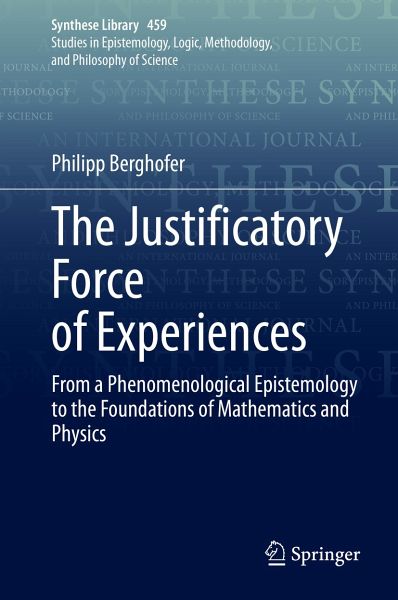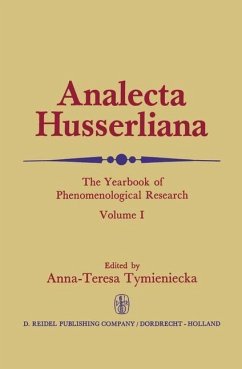
The Justificatory Force of Experiences (eBook, PDF)
From a Phenomenological Epistemology to the Foundations of Mathematics and Physics
Versandkostenfrei!
Sofort per Download lieferbar
Statt: 128,39 €**
88,95 €
inkl. MwSt.
**Preis der gedruckten Ausgabe (Gebundenes Buch)
Alle Infos zum eBook verschenkenWeitere Ausgaben:

PAYBACK Punkte
44 °P sammeln!
This book offers a phenomenological conception of experiential justification that seeks to clarify why certain experiences are a source of immediate justification and what role experiences play in gaining (scientific) knowledge. Based on the author's account of experiential justification, this book exemplifies how a phenomenological experience-first epistemology can epistemically ground the individual sciences. More precisely, it delivers a comprehensive picture of how we get from epistemology to the foundations of mathematics and physics. The book is unique as it utilizes methods and insights...
This book offers a phenomenological conception of experiential justification that seeks to clarify why certain experiences are a source of immediate justification and what role experiences play in gaining (scientific) knowledge. Based on the author's account of experiential justification, this book exemplifies how a phenomenological experience-first epistemology can epistemically ground the individual sciences. More precisely, it delivers a comprehensive picture of how we get from epistemology to the foundations of mathematics and physics.
The book is unique as it utilizes methods and insights from the phenomenological tradition in order to make progress in current analytic epistemology. It serves as a starting point for re-evaluating the relevance of Husserlian phenomenology to current analytic epistemology and making an important step towards paving the way for future mutually beneficial discussions. This isachieved by exemplifying how current debates can benefit from ideas, insights, and methods we find in the phenomenological tradition.
Dieser Download kann aus rechtlichen Gründen nur mit Rechnungsadresse in A, B, BG, CY, CZ, D, DK, EW, E, FIN, F, GR, HR, H, IRL, I, LT, L, LR, M, NL, PL, P, R, S, SLO, SK ausgeliefert werden.
Alle Preise in Euro und inkl. der gesetzl. MwSt. | Innerhalb Deutschlands liefern wir preisgebundene Bücher versandkostenfrei. Weitere Informationen: bitte hier klicken
Support
Bitte wähle dein Anliegen aus:
Rechnungen
Bestellstatus
Retourenschein
Storno












